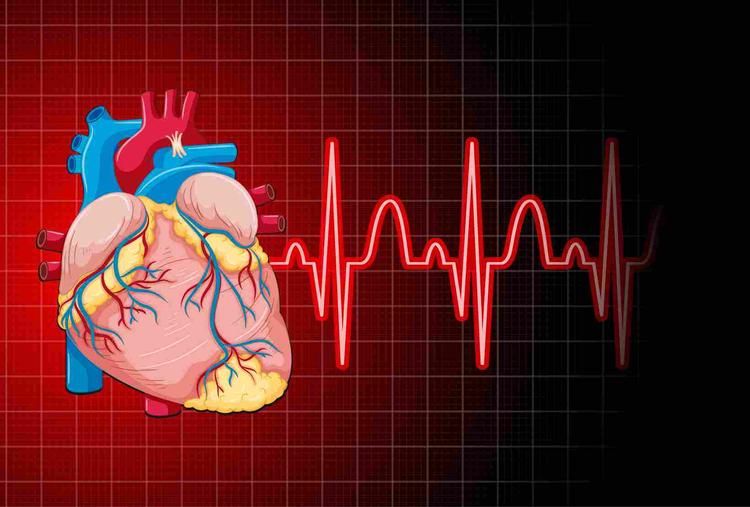Is Your Cholesterol Rising? Try These Effective Home Remedies To Control Cholesterol

Medically Reviewed By
Dr. Ragiinii Sharma
Written By Srujana Mohanty
on Sep 29, 2022
Last Edit Made By Srujana Mohanty
on Mar 18, 2024

Cholesterol is required in your body to build healthy cells. However, if cholesterol accumulates in your body, it can also have a negative effect. Cholesterol is of two types: high-density lipoprotein (HDL or good cholesterol) and low-density lipoprotein (LDL or bad cholesterol). HDL maintains the health of your cells, whereas LDL accumulates in your arteries, increasing your risk of heart diseases, including heart attack. According to the Indian Council of Medical Research (ICMR), around 79% of Indians have LDL above normal cholesterol levels. With around three-quarters of the population of India experiencing high lipid levels, it is very important to know how cholesterol levels can be managed.
In this article, let us talk about home remedies to control cholesterol levels in your blood.
What are the effective remedies to decrease blood cholesterol levels?
The rising levels of blood cholesterol are extremely dangerous for your heart health. It is essential to monitor and manage your blood cholesterol levels. Many medicines on the market can help lower your cholesterol levels. Apart from medicines, you also need to change your diet and lifestyle to considerably affect your cholesterol levels. Certain home remedies that can decrease your blood cholesterol levels include dietary modifications, regular exercise, and lifestyle changes. Let’s discuss each of them individually.
High LDL or bad cholesterol levels can be life-threatening and damaging as well. One must observe the minute symptoms that can be an indication of a future complication. If in case you feel abnormal, get a lipid profile test done to assess your health condition better. The early diagnosis of high cholesterol levels and its management at an early stage can protect you from fatal complications in the future.
Dietary remedies
Your diet is important in determining various blood parameters, including cholesterol levels. Thus, to manage and decrease cholesterol levels, you need to include cholesterol control foods in your diet. Certain food products have proven benefits in lowering cholesterol levels. Following is a list of food items you can conveniently include in your cholesterol control diet.
Garlic
Garlic is a natural plant used for ages for its excellent health-enhancing properties. It is used excessively in Indian cooking. It is composed of minerals, vitamins, amino acids, and organosulfur compounds like ajoene, diallyl sulfide, allicin, s-ethylcysteine, and s-allyl cysteine. These sulphur-containing compounds are the active ingredients responsible for the therapeutic properties of garlic. According to research, garlic effectively reduces the LDL and total cholesterol levels. However, the effect of garlic on good cholesterol (HDL) is still not well recognized. Garlic can also positively affect the antioxidant potential of the blood and blood pressure. Daily consumption of ½ to 1 garlic can reduce the cholesterol levels in your blood by up to 9%.
Green tea
Green tea is another widely taken liquid. It is a rich source of polyphenols that provide multiple benefits to your health. The polyphenols present in green tea in high concentrations lower the levels of bad cholesterol and increase the good cholesterol levels in the blood. According to a case study, people who drank green tea have lower cholesterol levels than the ones who didn't drink green tea. According to the studies, polyphenols present in green tea hinder and block the absorption of polyphenols in the intestine. Approximately 2-3 cups of green tea are sufficient for your body.
Coriander seeds
It is no surprise that coriander seeds, commonly known as dhaniya seeds, are included in the list of top natural home remedies for managing cholesterol. Coriander seeds have been used in Indian Ayurveda for ages because of their numerous health benefits, including their potential to lower the bad cholesterol levels in the blood. The main constituents of coriander seeds include vitamin A, vitamin C, beta-carotene, and folic acid.
Fenugreek seeds
Fenugreek or methi seeds are another popular Indian spice with many essential health benefits. They are used as a spics and flavoring agent in different Indian dishes. Their medicinal properties have been exploited for human use for several years. Methi seeds are antioxidant, anti-inflammatory, and antidiabetic because of the presence of a high amount of vitamin E. The saponins present in fenugreek help in the removal of cholesterol from the body and also reduces the synthesis of cholesterol in the liver. The required daily consumption of methi seeds is around ½ - 1 tablespoon.
Amla
Amla contains a high amount of phenolic compounds, vitamin C, amino acids, and minerals, providing various medicinal health benefits to humans. The treatment of various diseases in Ayurveda is done using the fruit of amla. In various research studies, the effect of lowering the cholesterol of amla is compared to various drugs available on the market. Amla not only reduces cholesterol levels but also protects against CAD and atherosclerosis. The consumption of amla daily reduces oxidative damage and the levels of bad cholesterol in the blood as well. You can consume around 1-2 amla fruits daily.
Psyllium husk
The US FDA approved the health claims of Psyllium husk in 1998. Psyllium husk is derived from the crushed seeds of Plantago Ovata. It contains soluble fiber that lowers cholesterol and saturated fat levels in the blood, thereby reducing the risk of heart disease. Psyllium husk is used for various other medical benefits besides lowering the LDL cholesterol levels in the blood. Adding 1-2 teaspoons of psyllium husk is sufficient to contribute to your daily requirement for soluble fiber that can lower the cholesterol levels in the blood.
Red yeast rice
Red yeast rice is nothing but white rice cooked along with yeast. This is a very beneficial food and medicine for people who eat yeast. It is a traditional Chinese food. The supplements of red yeast rice and monacolin K are available in the market that can lower cholesterol levels in your blood. If you take red yeast rice supplements without monacolin K, they can also provide beneficial results in lowering cholesterol levels. You can take red yeast rice even if you are taking other cholesterol-lowering drugs like lovastatin.
Flax seed
Flax seed and flaxseed oil obtained from the flax plant contain high levels of alpha-linolenic acid (ALA), an omega-3 fatty acid that aids in lowering the risk of heart disease. According to the National Centre for Complementary and Integrative Health (NCCIH), there are mixed opinions regarding the benefit of flaxseed for heart health. Flaxseeds have been observed to produce a more effective cholesterol-lowering effect in people with high cholesterol levels and postmenopausal women.
Fish oil supplements
Fish and fish oils are rich sources of omega-3 fatty acids. Fishes with a high amount of omega-3 fatty acids include tuna, salmon, herring, sardines, and lake trout. According to experts, the omega-3 fatty acids present in fish considerably reduce your risk of heart disease. Consuming about 1-2 servings of fatty fish in a week can lower your risk of a heart attack. Omega-3 fatty acid supplements are also highly beneficial in preventing heart diseases. Walnuts, soybean, and canola oil are other excellent sources of omega-3 fatty acids that are effective in preventing many heart diseases.
Plant sterol and stanol supplements
Vegetables, fruits, seeds, nuts, and grains are excellent sources of plant sterol and stanol supplements, along with processed and fortified food such as orange juice, fortified margarine, and yogurt products. Plant sterol and stanol supplements prevent cholesterol absorption in the small intestine, ultimately reducing the levels of bad cholesterol in the blood and lowering the risk of heart diseases.
Whole grains
Whole grains like brown rice and oats contain soluble fiber that can help lower your blood's LDL or bad cholesterol levels. 5 to 10 grams of soluble fiber are enough to produce desired results. Fibers are eaten slowly, allowing them to cling to the cholesterol in your blood, ultimately taking them out of your body. You can have half a cup of cooked oats that contain around 2 grams of soluble fiber, which is enough to keep you full for the whole day.
Exercise
Besides dietary modifications, daily exercise can also lower your blood cholesterol levels. It is recommended that weight lifting and aerobic exercises can help lower your cholesterol levels.
The type of workout you do determines its effect on your body. Moderate exercise lowers your blood's LDL levels and can also increase HDL levels. HDL is good cholesterol that helps manage other forms of cholesterol. The doctors recommend 75 minutes of high-intensity aerobic exercise and 150 minutes of moderately intense aerobic exercise every week. This much exercise is sufficient to raise the HDL levels of your blood. Basic exercises like biking, walking, swimming, jogging, skipping, and tennis can also be included in your daily routine.
Lifestyle modifications
Lifestyle is an important parameter that determines the levels of cholesterol in your body. Certain modifications or changes in lifestyle can help manage the levels of cholesterol in your blood considerably. Following are some of the modifications you must include in your lifestyle for a healthy life.
Quit smoking
Smoking is a very harmful habit not only for your blood cholesterol levels but for your general health as well. Smoking increases your blood's LDL cholesterol levels and decreases your blood's HDL cholesterol levels. Quitting smoking can help maintain the balance in HDL and LDL levels. Quitting smoking can increase your HDL cholesterol levels in around 3 weeks. Quitting smoking is difficult, but you can surely achieve your goals with a firm decision. Nicotine replacement, counseling, medicines, online support groups, and quitlines can help you quit smoking.
Maintain proper body shape
To maintain blood cholesterol levels, you must manage your weight and get your body in the right shape. This can be achieved by monitoring the intake of your calories. You can switch to tap water if you're fond of sweet refreshments, or you can munch on air-popped popcorn to reduce your calorie intake. Take stairs wherever possible instead of the lift and include other physical activities in your daily life.
Limit alcohol consumption
Alcohol is another thing that can greatly affect your blood cholesterol levels. Excess of anything is bad, and so is alcohol. Excess consumption of alcohol can increase the levels of triglycerides in your blood. High triglyceride levels and high LDL cholesterol levels make you more prone to heart diseases. Excess alcohol consumption also increases your blood pressure and leads you to obesity. The acceptable limit of alcohol you can drink safely is up to 10 standard drinks per day with maximum of 4 drinks per day.
Takeaway
Cholesterol is an important molecule in the blood responsible for various heart-related diseases. High cholesterol levels in your blood are extremely dangerous and, thus, can also lead to a heart attack. With lives getting busier day by day, it is important that you start taking care of yourself. Now that you know the dietary modification and lifestyle changes you must include in your daily life to reduce the levels of blood cholesterol and the risk of heart diseases, make sure you follow them religiously.
Frequently Asked Questions (FAQs)
1. How can I reduce cholesterol levels quickly?
The certain ways by which you can lower your cholesterol levels include:
- Take care of the amount of fat you consume
- Include more fruits and vegetables into your diet
- Prefer more plant sources for protein
- Regular physical activity is essential
- Limit your intake of refined grains.
2. What vitamin plays an important role in lowering blood cholesterol levels?
Niacin, a form of vitamin B, helps increase the levels of good cholesterol in your body and lower triglyceride levels.
3. What factors can lead to increased cholesterol levels?
Certain factors that are highly responsible for increased cholesterol levels in the blood include:
- Excess intake of caffeine
- Sudden weight loss
- Psychological stress
- Smoking



